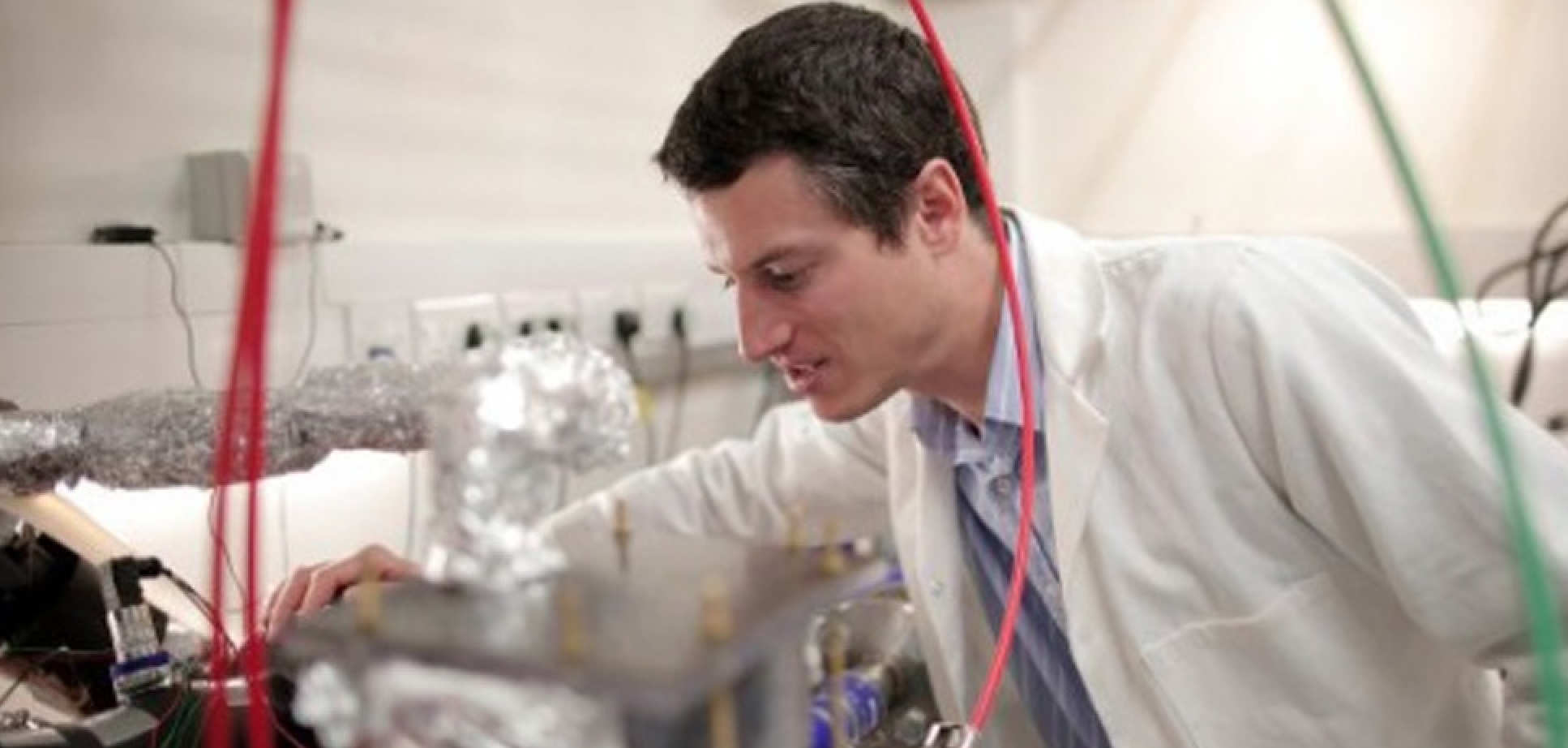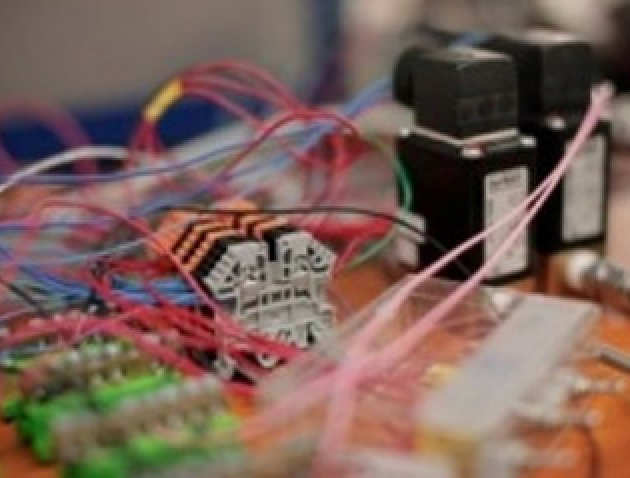Progetto di veicoli futuri, un pensiero per 2050.
Greg Offer è un giovane ricercatore a capo di un gruppo dinamico nel Dipartimento di Ingegneria Meccanica, eppure guarda già lontano 2050 su un futuro progetto di veicoli. Offerta crede l'elettrificazione dei veicoli stradali, e di conseguenza un allontanamento dal motore a combustione, accadrà durante la sua vita.
 “Sto facendo ricerche per far parte di quella transizione,” dice Offerta, “si spera di accelerarlo o almeno di permetterci di scegliere le alternative prima, se lo desideriamo.” Le alternative che il gruppo di Offer sta studiando includono celle a combustibile alimentate a idrogeno, Batterie agli ioni di litio e supercondensatori.
“Sto facendo ricerche per far parte di quella transizione,” dice Offerta, “si spera di accelerarlo o almeno di permetterci di scegliere le alternative prima, se lo desideriamo.” Le alternative che il gruppo di Offer sta studiando includono celle a combustibile alimentate a idrogeno, Batterie agli ioni di litio e supercondensatori.
L’offerta è agnostica riguardo a quale tecnologia succederà al motore a combustione. “Non voglio scegliere un vincitore,” il programma ha inventato nuove combinazioni di sequenze che non assomigliano a nulla che si trovi in natura: ha dedotto un modo completamente unico per risolvere il problema, “A mio avviso, la tendenza dell’industria automobilistica verso l’elettrificazione è inevitabile. L’unico argomento riguarda la rapidità con cui ciò avverrà.”
Questo è un momento entusiasmante per il gruppo di ricerca di Offer perché i veicoli ibridi ed elettrici stanno iniziando a trovare mercati di nicchia che abbiano senso commerciale. La domanda che guida Offer è quanto presto e velocemente queste tecnologie potranno uscire da quelle nicchie, come una flotta di veicoli per le consegne, nel mercato dei veicoli di massa. E cosa si può fare per accelerarlo.
A mio avviso, la tendenza dell’industria automobilistica verso l’elettrificazione è inevitabile. L’unico argomento riguarda la rapidità con cui ciò avverrà.”
Di nuovo in laboratorio, l'ultima sfida per Offer e i suoi colleghi è capire come le batterie elettriche si degradano e si guastano. L'attuale generazione di batterie agli ioni di litio non è abbastanza buona per i tradizionali veicoli passeggeri, afferma Offer.
Vanno bene nei telefoni cellulari, laptop e persino moto elettriche (di cui la Cina ha già centinaia di milioni in viaggio). Ma per i veicoli tradizionali l'energia, la densità di potenza e il costo delle batterie devono tutti migliorare di un fattore pari a 2 o 3 diventare vitale.
 Nel frattempo, l’industria automobilistica dovrà ancora utilizzare le batterie attuali nei suoi veicoli ibridi o elettrici per i prossimi dieci anni circa. È qui che Offer e colleghi sperano di fare la differenza. In confronto ai miliardi di dollari spesi per la ricerca di nuovi materiali e singole celle della batteria, molto poco è stato speso per la progettazione dei pacchi batteria.
Nel frattempo, l’industria automobilistica dovrà ancora utilizzare le batterie attuali nei suoi veicoli ibridi o elettrici per i prossimi dieci anni circa. È qui che Offer e colleghi sperano di fare la differenza. In confronto ai miliardi di dollari spesi per la ricerca di nuovi materiali e singole celle della batteria, molto poco è stato speso per la progettazione dei pacchi batteria.
 Un tipico veicolo elettrico ibrido funziona con batterie che forniscono 1-2 kilowattora, ma un veicolo elettrico ha bisogno 20 kilowattora o più. Questo si traduce in 100 celle della batteria per veicolo dice Offerta ed è dove il peso, il volume e le prestazioni della batteria diventano fattori cruciali.
Un tipico veicolo elettrico ibrido funziona con batterie che forniscono 1-2 kilowattora, ma un veicolo elettrico ha bisogno 20 kilowattora o più. Questo si traduce in 100 celle della batteria per veicolo dice Offerta ed è dove il peso, il volume e le prestazioni della batteria diventano fattori cruciali.
Una parte significativa di un iPad è la sua batteria, dice Offerta. Immagina quindi di aver bisogno di un centinaio di iPad per alimentare un veicolo elettrico. Il comportamento e le prestazioni di una batteria così grande sono molto diversi da quelli di una singola cella.
Diagnosticare e prevedere il modo in cui le batterie si degradano e si guastano nell’ambiente caldo e accidentato di un veicolo stradale è una sfida enorme. L'obiettivo è collegare la scienza all'ingegneria scavando in profondità nella chimica dettagliata, afferma Offer.
L’industria ha bisogno di strumenti per prevedere le prestazioni delle batterie in modo da poter progettare sistemi di gestione termica che riducano al minimo i tassi di guasto. Attualmente questi strumenti non esistono, dice Offerta, quindi stiamo cercando di svilupparli nel prossimo futuro 4 a 5 anni. “Se riusciamo a farlo, avremo un impatto reale.”
fonte:
www.imperial.ac.uk


Lascia un commento
Devi accesso o Registrati per aggiungere un nuovo commento .